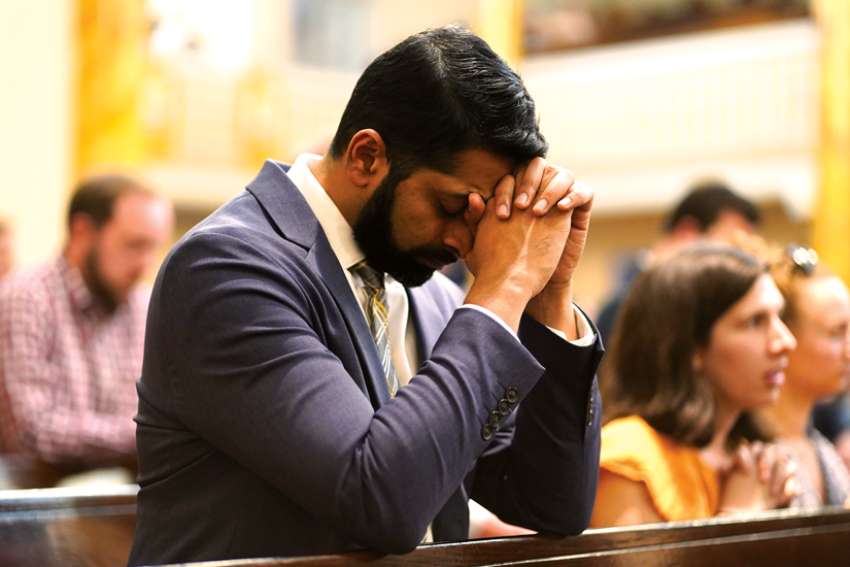Amid data dark with post-faith gloom, Bennett writes in these pages, there are signs of “cracks in the secular” through which the advent of new born belief is illuminated. Chief among them for Christians at least, he points out, is the number of young people whose faith is founded on the rock of the Gospel and not upon the shifting sands of “cultural tradition or social expectations.” While 18 per cent of Canadians 18-34 are religiously committed, the faith to which they commit is unwaveringly “authentic and deliberate.”
Alas, a plethora of their elders are at best wishy-washy about their baptismal vows. Worse, a stunning number are shame-faced gusting to hostile about Christian life. Bennett’s entire column needs to be read for context, but a shocking number to us is that 68 per cent of Catholics want God and religion kept out of public life.
Pray tell, do such people hew to a misbegotten conception of themselves as having two heads: one noggin for attending Mass and an entirely different hat rack for the world beyond the church door? Have they forgotten faith is a seamless garment to be worn in unity of belief requiring whole heart, whole mind, whole soul and whole strength?
Bennett ascribes such startling confusion to failures of both catechesis and evangelization, which is legitimate, yet risks placing too much responsibility on institutional and hierarchical structure. It lets individual Catholics off the hook of personal courage. Yes, courage, because if we as Catholics will not stand for ourselves, who else will stand for us?
Of course, standing for ourselves is not easy. That’s the courage part. Daily, for at least two generations now, our Church, our faith, has been targeted for virulent social scorn. The denigration started with self-interested proponents of so-called “secularization theory,” which held that the great god Progress would eventually squeeze traditional religiosity out of existence. Lately, the virus of anti-faith intolerance has parasitically fed on the sins of the Church herself, e.g. the evils of clerical sexual scandal and the horrid truth of Indian Residential School abuses.
As Catholics, we cannot deny those wrongs or the stain they have left on us as believers. But we must also be prepared to stand with the Church in the admission of her faults. We must point to the infinitude of goods that find their source in the Gospel she transmits, most important being salvation open to all who seek it.
We must not act in anger or with hostile counter polemic, but rather with the authentic and deliberate charity essential to who we are. We must, however, get cracking. As all others do, Catholics must begin to publicly demand the secular world regards in a fair and truthful light.


